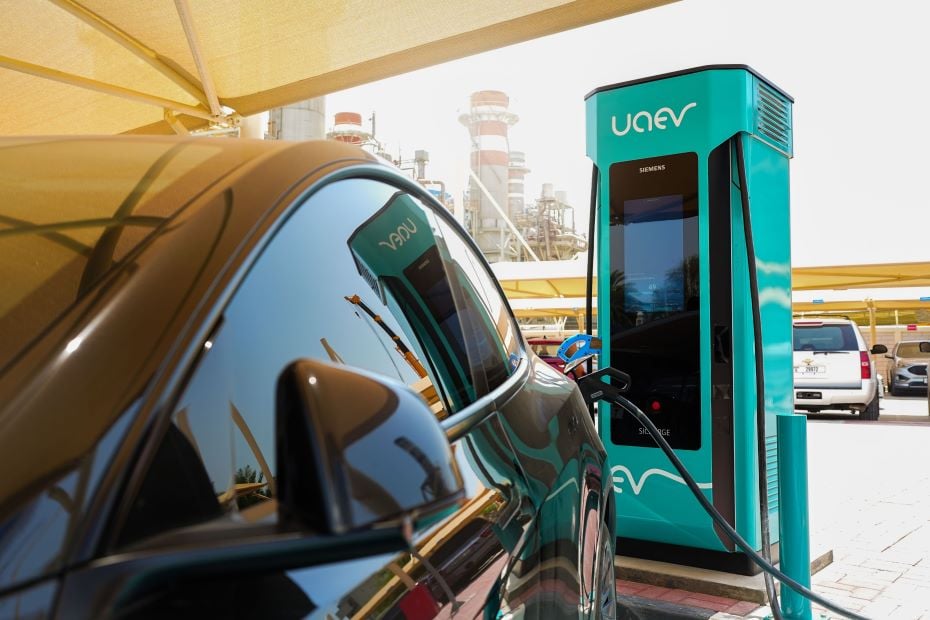UAEV to Implement New EV Charging Tariffs: A Step Toward Sustainable Transportation
In a pivotal development for electric vehicle (EV) infrastructure in the United Arab Emirates (UAE), UAEV, the nation’s first government-operated electric vehicle charging network, is set to introduce new charging tariffs effective January 2025. This initiative follows a series of pricing strategies recently enacted by the Ministry of Energy and Infrastructure that are designed to foster sustainability and facilitate the scalability of the EV network across the country.
Since the announcement of a transitional pricing period last May, EV users have enjoyed complimentary charging services, a move intended to refine operations while allowing for equitable access to crucial charging facilities. This grace period afforded UAEV the opportunity to assess user demand and operational efficiencies before implementing a structured pricing model.
New Tariffs and Pricing Structure
Under the new tariff scheme, which will be uniformly applied across the network, prices will be set at Dhs1.20 per kilowatt-hour (kWh) for direct current (DC) chargers and Dhs0.70 per kWh for alternating current (AC) chargers, both subject to value-added tax (VAT). This standardized rate is aligned with the increasing demand for EV charging infrastructure and will bolster the operational sustainability of UAEV’s network.
The introduction of these tariffs is a strategic decision reflecting broader trends in the global push towards sustainable transportation. Analysts note that standardization not only ensures fair pricing for consumers but also incentivizes the expansion of EV infrastructure, a critical component in promoting cleaner transportation solutions.
Enhancing User Experience with Technological Innovations
Beyond implementing new tariffs, UAEV has announced a series of user-centered technological innovations aimed at enhancing the overall EV charging experience. A mobile application will be launched, allowing users to easily locate charging stations, monitor real-time availability, and facilitate payments seamlessly. This mobile interface is expected to empower users by providing them with all necessary information at their fingertips, significantly improving the convenience of using EVs.
Additionally, UAEV is establishing a 24/7 customer support call center to address users’ inquiries and concerns, further enriching the reliability of the charging experience. Sharif Al Olama, Chairman of UAEV, underscored the importance of these advancements, stating, “This marks a transformative step in the UAE’s journey towards sustainable transportation. The implementation of standardized charging tariffs and innovative solutions like the UAEV app and around-the-clock support reflect our ongoing commitment to enhancing the EV driver experience. By expanding our network and aligning with the UAE’s Net Zero 2050 Strategy, we are driving a cleaner, greener future for all.”
Expansion Plans: A Vision for 2030
Looking ahead, UAEV is ambitiously planning to expand its network to include 1,000 strategically located charging stations by the year 2030. These stations will be positioned in urban centers, along major highways, and near critical transit points to facilitate easy access for EV drivers. Such infrastructure is essential to cultivate confidence in electric vehicles as a viable alternative to traditional gasoline-powered cars, addressing one of the most significant barriers to EV adoption: range anxiety.
As the global automotive industry increasingly leans towards electrification, the UAE is positioning itself as a regional leader in sustainable transportation. The government’s initiatives, coupled with UAEV’s efforts, reflect a systematic approach toward embracing technological advancements and environmental stewardship. This proactive stance not only serves to enhance the local economy but also aligns with global trends aimed at reducing carbon emissions.
Conclusion
The upcoming implementation of new EV charging tariffs by UAEV, together with its plans for technological enhancements and infrastructure expansion, paints a promising picture for the future of electric mobility in the UAE. As the nation continues on its path toward sustainability, these developments signal a commitment to not only improving the EV charging experience but also contributing significantly to the reduction of the UAE’s carbon footprint. The journey toward a more sustainable transportation landscape is indeed gathering momentum, with UAEV at the forefront of this transformative shift.
Tags: #BusinessNews #EnvironmentNews #UAE

